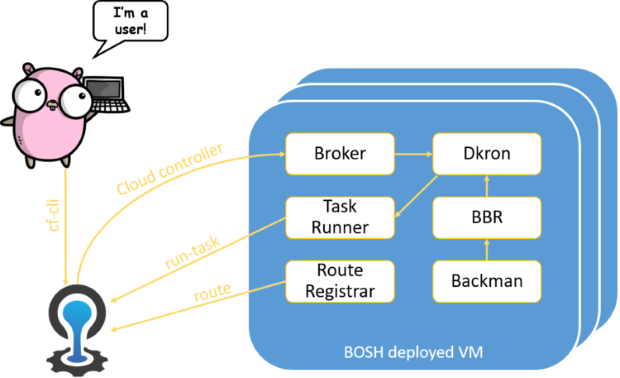While most of the time you are probably using the Swisscom Application Cloud to push long running processes (or “apps” as they are commonly called), there is the occasional use case for tasks.
Now tasks in Cloud Foundry are defined as a process that runs only for a finite amount of time, and then stops. A task runs in its own container, inheriting memory and disk limits from its parent app, and should be designed to use minimal resources while executing a “task”. After such a task exits Cloud Foundry will destroy and remove this container again. Tasks can also be checked for their current state and for a success or failure message after they finished.
Tasks are an example of a one-off or on-demand single use job that needs to do some kind of work and then exit, like:





